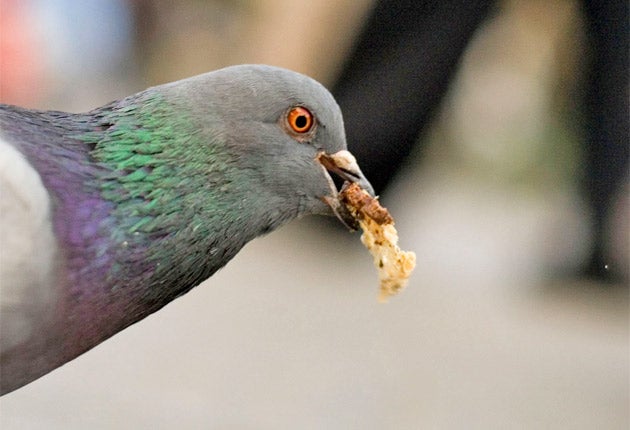Pigeons' high-risk strategies reveal why we all love a flutter

A gambling experiment has shown that pigeons like a flutter as much as humans – and that taking big risks in the hope of high rewards may be a fundamental part of our biological nature.
Scientists have shown that when faced with a choice between a series of safe, small but guaranteed rewards or a single much larger reward that is less likely to happen, pigeons will almost always choose to gamble.
The findings were a surprise to researchers, because Darwinist theory would predict that the birds would be honed by natural selection to act in a way that optimises the way they behave, rather than allowing them to take unnecessary risks that are going to leave them worse off in the long term.
However, the scientists believe that if pigeons have an innate predisposition to gamble then this could be a widespread trait across the animal kingdom – and might even explain why so many people like to gamble, even though they know they are likely to be worse off over time.
The experiment on pigeons indicates that there may be a fundamental biological reason for gambling rather than explanations based on purely human-centred preferences, such as the idea that gambling is practised because it is enjoyable and entertaining, said Thomas Zentall, professor of psychology at the University of Kentucky in Lexington.
"The entertainment value of gambling shouldn't really play a role with pigeons, yet we have found that most pigeons will choose to gamble if they are given a choice," said Professor Zentall. "This seems to suggest that there is some fundamental behavioural system at work. If pigeons do it, it allows us to rule out other things that have been suggested to explain why people like to gamble so much, such as its entertainment value."
The study, published in the journal Proceedings of the Royal Society B, involved giving pigeons a choice between pecking at a coloured light that always gave them access to three food pellets, or pecking at a different coloured light that gave them two pellets but the gambling opportunity of "winning" 10 pellets 20 per cent of the time, or zero pellets 80 per cent of the time.
Overall, the best strategy for optimal foraging would be to choose the three-pellet route. But eight out of 10 pigeons tested consistently chose to gamble – even though they were worse off at the end of the experiment than if they had played safe.
"The main message is that there is a behavioural, biological mechanism at work that encourages pigeons, and possibly many other organisms, to gamble even though this was a sub-optimal strategy," said Professor Zentall.
Subscribe to Independent Premium to bookmark this article
Want to bookmark your favourite articles and stories to read or reference later? Start your Independent Premium subscription today.

Join our commenting forum
Join thought-provoking conversations, follow other Independent readers and see their replies